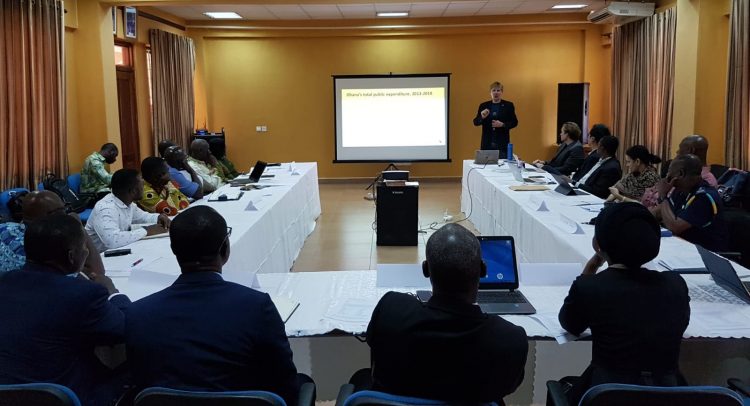Mr. Lomborg making a presentation at the Roundtable
The Copenhagen Consensus Center is leading the national drive aimed at ensuring that Government agencies, ministries, and departments, in Ghana prioritize much better and spend their monies smartly.
The Center is doing so through the Ghana Priorities Project.
It is partnering the National Development Planning Commission (NDPC), the Ministry of Planning, and the Ghana Statistical Service (GSS) in championing the Ghana Priorities Project.
The Center is working with key stakeholders across the country on the Ghana Priorities Project with the aim of finding, analyzing, ranking and disseminating the best solutions for the country’s development and growth.
Through the project, researchers are being offered the opportunity to present their preliminary works and receive inputs from senior officials and technical experts of the various ministries, departments, and agencies (MDAs) and other stakeholders.
The Center is commissioning some of the best economists in Ghana and around the world to calculate the social, environmental and economic costs and benefits of key Government’s projects.
Speaking to DGN Online on the sidelines of a Stakeholders Roundtable on the Ghana Priorities Project, Thursday, October 10, 2019, in Accra, President of the Copenhagen Consensus Center, a US-based policy think-tank, Bjorn Lomborg, said the Priorities Project is to make government know where to do the best projects, focused on cost-benefit analysis.
It essentially looks at all costs not only economic but also social and environmental, he noted.
In May 2020, a national conference is expected to be held on the Ghana Priorities Project.
The conference is to bring together key stakeholders including Government’s ministries, departments and agencies, as well as academicians.
The Center has pledged to engage people and institutions from all parts of society, through newspapers, radio, and TV, along with NGOs, decision makers, sector experts, and businesses to propose the most relevant solutions to Ghana’s socioeconomic and environmental challenges.
“What we are doing is we are working with some of the best economists in Ghana and abroad to look at cost-benefit analysis, essentially looking at how good it is you spend an extra cedi on malaria, or if you spend it roads, or if you spend it on education,” Mr. Lomborg noted.
The program is to help inform Government and other stakeholders about what the smart ideas in Ghana are, he added.
He disclosed that key areas being looked at were free Senior High School (SHS), nutrition for children, mosquito nets, tuberculosis, among others.
He noted that attention was being paid on what projects the Ghanaian Government spends its extra revenue on annually.
BY Melvin Tarlue


